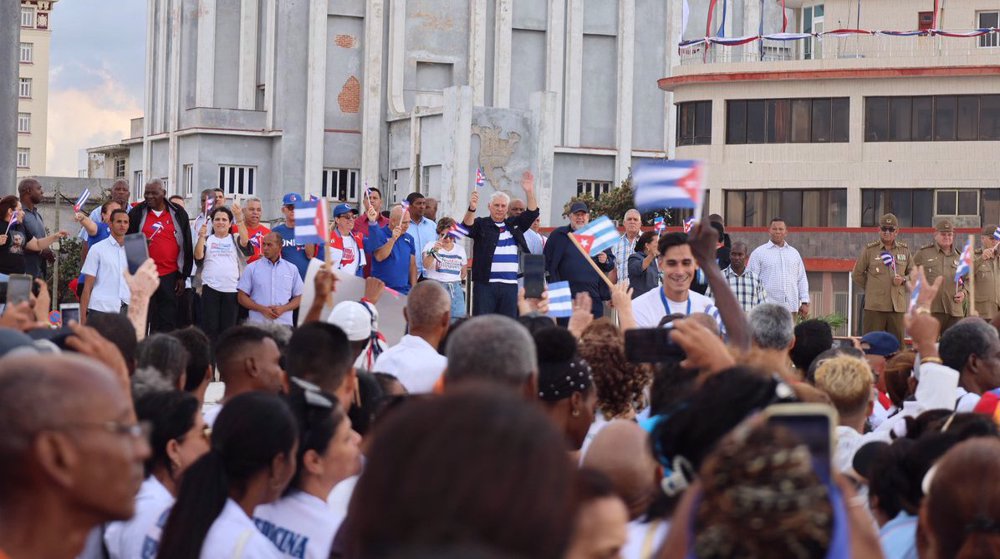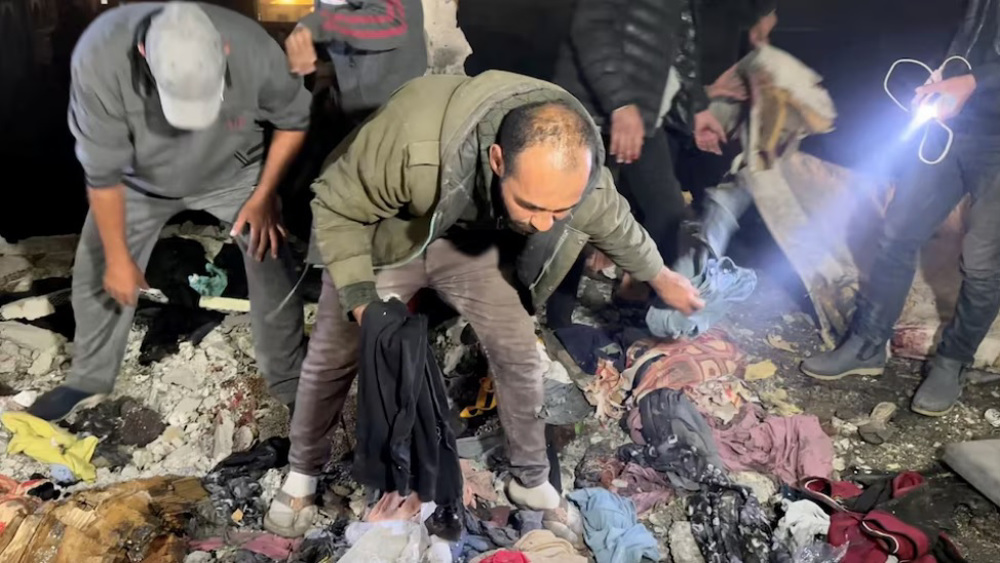Bolivians protest against interim government amid fears of civil war
Bolivians have taken to the streets for yet another day against the new interim government that has taken power after a coup d’état against democratically elected president Evo Morales
Thousands of demonstrators marched through the capital La Paz in support of Morales who has been granted asylum in Mexico after he was forced to step down under pressure from the military and political opponents on Tuesday.
They were demanding reinstatement of their left-wing leader, who was declared president for a fourth term in the election back in October.
The opposition, however, rejected the outcome and claimed that there had been fraud in the election process.
That sparked violent street protests, which left three people dead and hundreds more wounded, in what the Morales government already called a coup bid.
On Wednesday, self proclaimed interim president Jeanine Anez appointed a new cabinet.
This brought crowds of demonstrators into the seat of government, La Paz, from the neighboring town of El Alto for the second day on Thursday, who were insisting that Morales' departure was not a resignation but rather the product of a coup.
Protesters were waving multicolored "wiphala" indigenous flags, with many of them chanting "The time is now, civil war" and "Come back Evo!"
"We are calling for the resignation of this racist president, this putschist," said an indigenous protester.
Angry demonstrators tore off corrugated sheets of metal and wooden planks from construction sites to use as weapons, and some set off sticks of dynamite.
“We don’t want any dictators. This lady has stepped on us — that’s why we’re so mad,” said another protester. “We’re going to fight with our brothers and sisters; until Evo Morales is back. We ask for his return. He needs to put the house in order.”
This has raised concerns that the country is now on the brink of a civil war.
Since the October vote, at least 10 people have been killed, mostly by projectiles from firearms, according to the public prosecutor's office.
In the meantime, the interim government managed to make a deal with lawmakers from Morales's Movement for Socialism (MAS) party, to pursue new elections. Morales cannot, however, run in any new elections.
A member of the party, Monica Eva Copa, who was sworn in as President of the Senate said that the party “have been able to agree between opposition and government with the sole objective to make new elections as soon as possible, to pacify our country and above all to defend democracy.”
She called on Bolivia's security forces to treat the country's indigenous groups with respect.
“Let's get rid of colors, of radical positions, what our country is looking for right now is peace," she said.
The interim president, however, reiterated on Thursday that “Evo Morales is not allowed to stand for a fourth term. That's why we've had all this upheaval.”
She called on MAS to “find another candidate.”
MAS accused Anez of "continuing to incite violence" in the country, which had been experiencing years of stability and high economic growth under Morales.
The United States, Brazil, Colombia, Guatemala, Germany and Britain have recognized Anez as interim president.
Russia, an ally for Bolivia under Morales, said it would work with Anez until new elections were held.
“This is not about recognizing what has happened in Bolivia as a legitimate process," said Russian Foreign Ministry Spokesperson, Maria Zakharova.
European Union diplomatic chief, Federica Mogherini, also reacted to the developments saying her bloc supported a solution that looked toward new elections and a way "to avoid a power vacuum, which could have dire consequences for the entire country."
US 'great conspirator' in Boilvia coup: Morales
Later in the day, Morales denounced the United States for acting as the “great conspirator” behind the “coup d’etat.”
He proclaimed in an interview with AP that he is in fact still the president of his country.
Morales argued that Bolivia’s Legislative Assembly has not yet accepted his resignation which was tendered under pressure from the military on Sunday.
“If they don’t approve or reject it I can say that I am still president,” he said on Friday. He also called on the United Nations to mediate in Bolivia’s political crisis following the coup d’état.
He further added that he would return to his home country, if that would contribute to resolving the current crisis.
Anez recognizes Venezuela's Guaido
Anez, who appointed a new military chief and cabinet, took the first step toward her government’s foreign policy by recognizing Venezuelan opposition figure, Juan Guaido as his country's president.
Guido, in a similar fashion to Arzó, declared himself interim president back in January and pushed Venezuela into political turmoil by rejecting the outcome of the May 2018 presidential election, which President Nicolas Maduro won.
Arzó said that she reached out to Guaido and asked him to send an ambassador to La Paz.
Bolivia had been an ally for the government of President Maduro.
Guatemalans condemn the Bolivia coup
In another round of protests against the situation in Bolivia, hundreds of people rallied in Guatemala City on Thursday.
Carrying banners and signs with Morales' photo, demonstrators marched along the capital's main avenues towards the US embassy, amid tight security.
Saudi delegation meets HTS leader at presidential palace in Damascus
Relentless Israeli ceasefire violations justify need for self-defense: Lebanese MP
Tel Aviv tells Damascus Israeli forces will remain in occupied territory: Report
Dec. 22: ‘Axis of Resistance’ operations against Israeli occupation
‘Abhorrent’: Oxfam says only 12 trucks delivered aid in North Gaza since Oct.
VIDEO | Leader receives religious eulogists on Hazrat Fatima birth anniv.
Pope Francis slams Israel’s ‘machine-gunning’ of Gaza children
US hostage-taking of Iranian nationals violation of intl. law: Deputy FM














 This makes it easy to access the Press TV website
This makes it easy to access the Press TV website